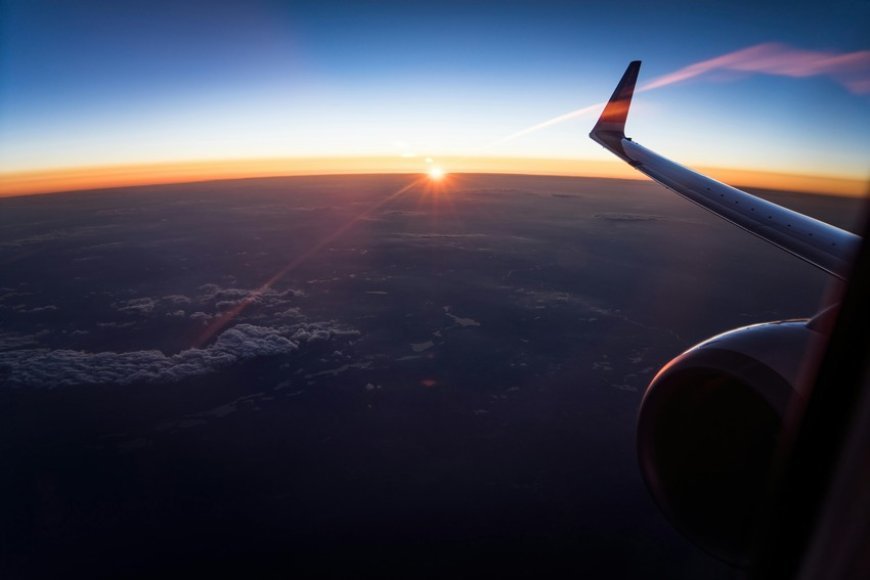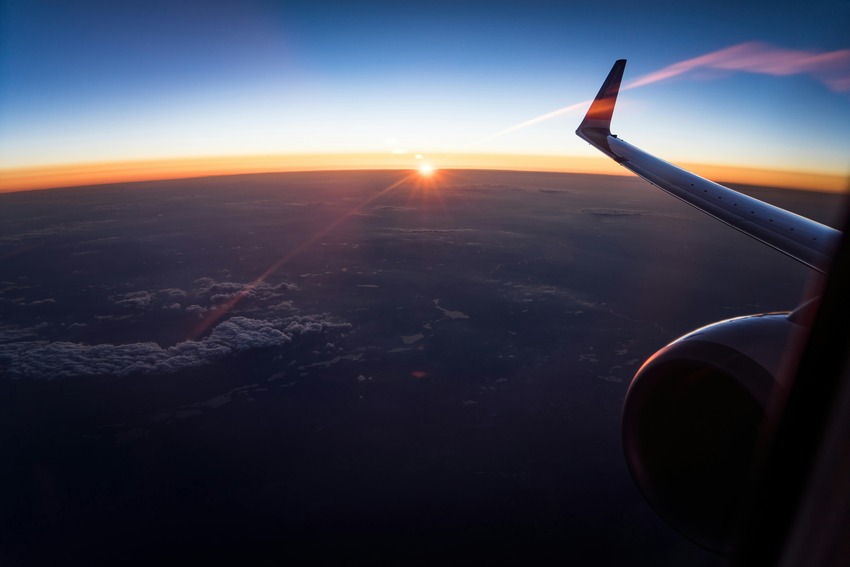Greenland Shuts Down Airport Security for Reindeer Hunt, Stranding US-Bound Flight for Hours


In Nuuk, Greenland’s quiet but strategically important capital, travelers expecting a straightforward departure on August 3, 2025, found themselves caught in an unusual situation that no travel guide could have prepared them for. United Airlines flight UA81, scheduled for Newark, had its departure time set for 09:00 local time. Passengers had already checked in, bags were tagged and sorted, and boarding passes were in hand.
Yet, in the airport’s security screening area, there was no movement. No sound of scanners, no officers guiding travelers through checkpoints, and no sign of the security staff whose presence was essential for the flight to leave on time. The absence had nothing to do with storms, equipment issues, or labor disputes. Instead, the staff had simply not come to work.
The explanation, while surprising to international travelers, was obvious to Greenlanders. The first day of reindeer hunting season had arrived, and the opportunity to gather fresh game was valued above any other responsibility. Uniforms had been left hanging as rifles were taken up. Instead of monitoring carry-on bags and passports, the security team was scattered across the tundra in pursuit of game.
A first-year route meets an unexpected delay
The flight was not just any connection. The Nuuk–Newark route was a brand-new addition to United Airlines’ network, having been launched in June 2025. Operating seasonally until September, it linked the Arctic capital to one of the busiest hubs in the United States. The service was run with Boeing 737 MAX 8 aircraft, offering a modern, fuel-efficient option for the challenging long-haul segment.
United had anticipated a mix of leisure travelers, adventurous tourists, and Greenlanders with family or business ties in North America. The airline had prepared for the region’s weather volatility, short runway conditions, and the logistical limits of operating in a remote location. But nothing in its operational planning had accounted for an entire airport security team disappearing for a hunt.
Once the absence became clear, the departure process ground to a halt. No boarding could take place without security clearance, and passengers were left waiting in the terminal with no clear timeline for resolution. The flight eventually left Nuuk at 12:13 local time, more than three hours behind schedule.
Hunting season as a way of life
For those unfamiliar with Arctic life, the decision by the security team might have seemed reckless. For Greenlanders, it was entirely rational. Hunting is not just recreation; it is a way to secure vital food supplies.
Greenland’s geography and climate limit local agriculture, and much of its food is shipped from Denmark or other European suppliers. During winter, sea ice can halt supply ships for months. Flights can also be delayed or canceled by weather, reducing the reliability of imported goods. Meat from reindeer, seal, and fish provides an important supplement to the diet, especially in smaller communities where stores may carry a limited selection.
When reindeer hunting season opens, it is a brief and highly valued period. Families take to the tundra to gather enough meat to last through the year. Many households store large amounts in freezers, while others make use of the natural outdoor cold. The activity is as much cultural tradition as it is necessity, and it is common for workplaces to see reduced staff levels during the first days of the season. At Nuuk Airport, the entire security team decided to take part, leaving the facility without the personnel needed for international screening.
The aviation challenge of remote destinations
The incident highlighted a reality that is familiar to pilots and airline planners but less obvious to passengers. In the Arctic, there are few alternate airports for diversion or emergency use. Aircraft flying long routes into Greenland must carefully plan fuel reserves and designate approved alternates that meet both operational and regulatory requirements.
For the Nuuk–Newark service, United uses Keflavík Airport in Iceland as its designated alternate. While effective, this choice is near the maximum operational range for the Boeing 737 MAX 8 when including FAA reserve rules. Any delay on the ground at Nuuk can complicate crew schedules and disrupt the tight operational windows needed to keep the service running smoothly.
Proposals for expanded airport facilities in Greenland, such as at Ilulissat, could help ease some of these constraints. More infrastructure would mean more options for diversions, emergency landings, and recovery when unforeseen events cause disruption. For now, however, operators must adapt to the limitations of the existing network.
Reactions from locals and visitors
News of the delay spread quickly through the terminal and onto social media. Travelers posted photos of the empty security lanes and shared their confusion. As details emerged about the hunting season, the mood shifted from irritation to bemusement for many.
In Greenlandic communities, there was little shock. Residents noted that such absences during hunting season are entirely predictable. Local forums and social media groups reminded outsiders that planning travel in Greenland involves understanding its cultural calendar. Just as tourists might avoid booking flights during major holidays in other countries, hunting season in Greenland has its own impact on daily life.
Some locals suggested that airlines should build schedule adjustments into the opening days of the season or prepare contingency staffing plans. Others argued that the tradition is too important to interrupt and that visitors should adjust their expectations.
Seasonal service meets seasonal reality
United Airlines introduced the Nuuk–Newark link as part of an effort to connect unique destinations to the U.S. market. The route offers North American travelers easier access to the Arctic and provides Greenlanders with a direct link to one of the busiest international hubs.
The delay on August 3 served as a reminder that remote operations come with unique challenges. Delays at major airports often stem from mechanical problems, air traffic congestion, or bad weather. In Nuuk, the cause can be as unexpected as a mass hunting trip. This difference is not simply logistical but reflects how deeply culture and survival needs are embedded in daily life.
Airline operations under pressure
From an airline’s perspective, delays like this create complex operational problems. Crew duty times must be tracked closely to prevent violations, onward flights in the aircraft’s rotation can be affected, and passenger itineraries often require rebooking.
In this case, the absence of security staff was entirely outside United’s control. Yet, the airline’s teams on the ground and in operations control had to react quickly. Passenger communication, coordination with airport management, and adjustments to subsequent flights would all have been required to minimize disruption.
Within the airline’s internal networks, the incident will likely be remembered for its novelty. Flight delays are common, but an entire departure being halted for reindeer hunting is the kind of story that becomes legend among dispatchers and flight crews.
Tourism and managing expectations
The growth of Greenland’s tourism industry has brought more visitors from Europe and North America. Travelers are drawn to its dramatic landscapes, wildlife, and the experience of visiting one of the world’s most remote nations.
However, incidents like the August 3 delay suggest that better pre-travel guidance could help manage visitor expectations. Tour companies and airlines may need to inform travelers about the potential impact of hunting seasons and other local traditions on services. Just as travelers to other regions plan around seasonal monsoons, volcanic activity, or national holidays, visitors to Greenland might consider hunting season part of the travel landscape.
A story passengers will not forget
For the passengers of UA81, the wait in Nuuk became part of their Arctic adventure. While some may have missed connections or faced longer total travel times, many left with a story that is unlikely to be repeated elsewhere. Few can claim to have been stranded because the airport’s security team had gone hunting.
When the aircraft finally climbed away from the runway, flying over rugged peaks and icy fjords, the episode had already secured its place as one of the most unusual travel experiences those passengers would ever have.
Future implications
Greenland’s growing air network will continue to face the challenge of balancing traditional life with modern transport demands. Infrastructure improvements could offer more flexibility, but cultural traditions like hunting are unlikely to disappear. Airlines operating in the region may find that adapting schedules and staffing expectations during key cultural events is a more realistic solution than expecting full attendance at work.
The August 3 delay stands as a vivid example of how geography, tradition, and modern travel intersect in the Arctic. In Nuuk, it is a reminder that while the world has become more connected, local priorities still hold the power to bring even international air travel to a halt.
Key facts
Date: August 3, 2025
Flight: United Airlines UA81, Nuuk to Newark
Scheduled departure: 09:00 local time
Actual departure: 12:13 local time
Aircraft: Boeing 737 MAX 8
Reason for delay: Airport security staff absent due to start of reindeer hunting season
Route launch: June 2025, seasonal until September 2025
Operational note: Limited diversion airports, Keflavík used as alternate
The post Greenland Shuts Down Airport Security for Reindeer Hunt, Stranding US-Bound Flight for Hours appeared first on Travel And Tour World.






